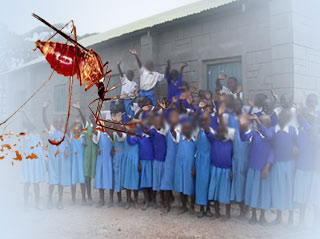A noteworthy dwindle in intense cognitive ability of school children and anemia risk if they were given preventive malaria treatment once per term was disclosed by a study led by Kenyan and British researchers The study suggests the administration of an anti-malarial drug to children, irrespective if they were infected or not to analyze the significance of IPT. The study emphasized on tackling malaria through school based health programs, which were otherwise successful in fighting worm infections.
Dr. Matthew Jukes, Assistant Professor of International Education at the Harvard Graduate School of Education remarked in the Lancet, “Although it has long been suspected that malaria impairs school performance, this is the first study to provide evidence of a direct link between malaria and reduced attention in class. These results indicate that malaria infection may hinder learning and its prevention could be important to enhance the educational potential of school children.â€
Dr. Siân Clarke, a Lecturer in Malaria Research and Control at the London School of Hygiene & Tropical Medicine commented on the study by saying, “Preventing malaria could have important health and cognitive benefits for African schoolchildren and deserves more attention. These results show us that intermittent preventive treatment in schools is a novel and effective means to address this problemâ€
Once each school term, at four monthly intervals, 4916 children aged between 5-18 years in a rural area of high malaria transmission in western Kenya in 30 primary schools were given three treatments (sulfadoxine-pyrimethamine combined with amodiaquine or a dual placebo) as a part of a randomized placebo-controlled trial. The study revealed halving the risk of anemia and decreasing the occurrence of malaria in children because of the impact of IPT. Though there were no prominent alterations in educational accomplishments, IPT recipients did show an improvement in class based tests of sustained attention.
This latest analysis is published in the Lancet.

